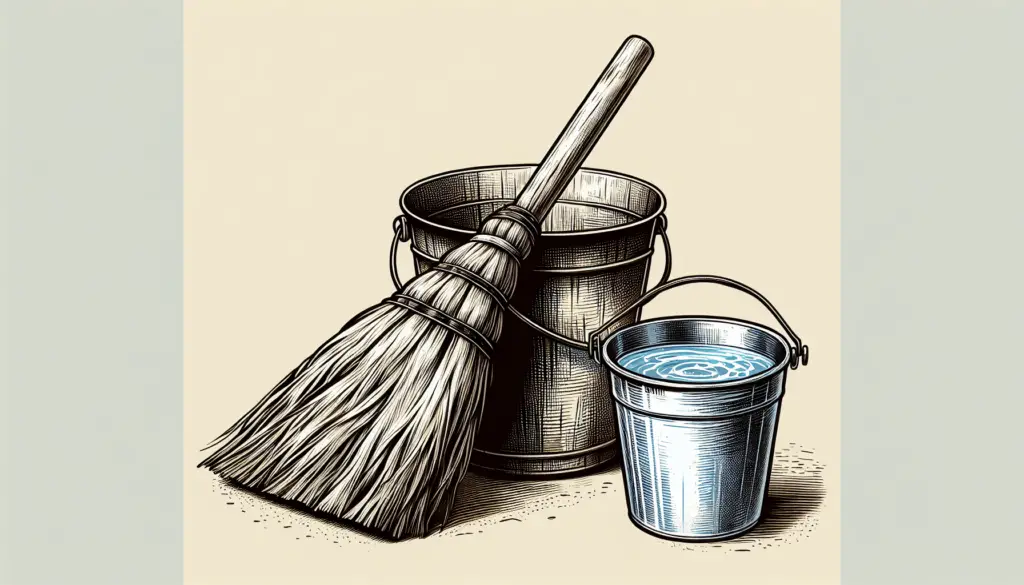Strategies For Maintaining Hygiene And Sanitation Without Modern Conveniences
Have you ever wondered how people maintained proper hygiene and sanitation before the invention of modern conveniences like indoor plumbing and electricity? In this article, we will explore various strategies that were used in the past and how you can incorporate them into your daily life to ensure cleanliness and good health.

Water Conservation
Conserving water is essential when you do not have access to modern plumbing. One way to do this is by collecting rainwater in containers for bathing and washing clothes. You can also reuse water from washing dishes to water plants or flush the toilet. By being mindful of your water usage, you can keep yourself clean while also being environmentally conscious.
Tip: Try using a basin to wash your hands and face instead of running water to minimize wastage.
Personal Hygiene
Maintaining personal hygiene is crucial for overall health and well-being. In the absence of modern toiletries, you can use natural alternatives like baking soda and vinegar for cleaning and deodorizing. Regularly washing your hands and keeping your nails trimmed can prevent the spread of germs and bacteria.
Tip: Make your own toothpaste using baking soda and coconut oil for a natural and effective way to keep your teeth clean.
Waste Disposal
Proper waste disposal is vital to prevent the spread of diseases and maintain cleanliness. In the past, people used various methods like composting organic waste for fertilizing crops and burying non-biodegradable waste. You can follow these practices by setting up a compost bin in your backyard and reducing your use of single-use plastic items.
Tip: Separate your waste into recyclable and non-recyclable categories to make disposal easier and more eco-friendly.
Handwashing Techniques
Effective handwashing is one of the simplest yet most important ways to prevent the spread of illnesses. Without access to running water, you can improvise by using a bucket or basin with a spout for handwashing. Make sure to lather your hands with soap for at least 20 seconds and rinse thoroughly with clean water.
Tip: Keep a small bottle of hand sanitizer with you when you’re on the go for quick and convenient hand hygiene.

Food Safety
Ensuring food safety is crucial for avoiding foodborne illnesses, especially in environments without modern refrigeration. To keep your food fresh for longer, consider using natural preservatives like salt, vinegar, and fermentation. Store perishable items in cool, dark places and consume them before they spoil.
Tip: Sun-dry fruits and vegetables for preservation and to enhance their flavors without the need for refrigeration.
Home Cleaning
Keeping your living space clean is essential for overall hygiene and sanitation. Dusting regularly, sweeping floors, and disinfecting surfaces can help prevent the buildup of dirt and germs. Natural cleaning agents like lemon, vinegar, and baking soda can be used to effectively clean various surfaces.
Tip: Open windows and doors regularly to allow fresh air to circulate and maintain good indoor air quality.
Personal Grooming
Maintaining proper grooming habits can boost your self-esteem and overall well-being. In the absence of modern grooming tools, you can use natural alternatives like coconut oil for hair conditioning and olive oil for moisturizing skin. Trimming hair and nails regularly can also help prevent infections and improve your overall appearance.
Tip: Use a mixture of honey and oatmeal as a natural exfoliant to remove dead skin cells and reveal smooth, glowing skin.
Laundry Techniques
Properly washing and drying your clothes is essential for maintaining personal hygiene. In the absence of modern washing machines, you can utilize hand washing techniques using a basin or tub. Sun-drying clothes can help kill germs and bacteria naturally while also saving electricity.
Tip: Soak heavily soiled clothes in a mixture of baking soda and water before washing to remove stains and odors effectively.
Oral Hygiene
Maintaining good oral hygiene is crucial for overall health and well-being. In the absence of modern dental care tools, you can use natural remedies like oil pulling with coconut oil for oral detoxification. Brushing your teeth regularly with a mixture of baking soda and salt can help prevent cavities and gum disease.
Tip: Chew on neem twigs or use them as toothbrushes for their natural antibacterial properties and oral health benefits.
Waste Reduction
Reducing waste is essential for environmental sustainability and maintaining cleanliness. Avoid using single-use plastic items and opt for reusable alternatives like cloth napkins and metal straws. By minimizing your waste production, you can contribute to a cleaner and healthier environment for future generations.
Tip: Invest in a reusable water bottle and coffee cup to reduce your dependence on disposable containers and minimize plastic waste.
Personal Care Products
Choosing natural and eco-friendly personal care products is essential for maintaining hygiene and environmental sustainability. Look for products with biodegradable packaging and organic ingredients to minimize your impact on the environment. You can also make your own personal care products using simple ingredients like coconut oil, shea butter, and essential oils.
Tip: Use apple cider vinegar as a natural hair conditioner and scalp tonic to maintain healthy hair and scalp without the use of harsh chemicals.
In conclusion, maintaining hygiene and sanitation without modern conveniences is possible with a few adjustments to your daily routine. By incorporating these strategies into your lifestyle, you can ensure cleanliness, good health, and environmental sustainability. Remember to be mindful of your water usage, practice proper waste disposal, and use natural alternatives for personal care to live a cleaner and healthier life.
